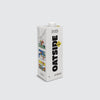
Cat’s personal journey started from a desire to seek answers to many health symptoms, she was led to look inward to her family history of coffee production. Howl for Coffee isn’t just a coffee trader, but a vehicle for Cat & Leo to make natural foods accessible to more starting with coffee.
We invite you to get to know Catherine Ganapathy on her specialty coffee journey and how Howl for Coffee is part of this small group leading the charge on the push of specialty coffee in India.
The interview was recorded live on Sunday, 31 Jan 2021 on Instagram, hosted by Carmen Cheang on CoffeeOn, our Sunday program featuring inspirational individuals for a coffee chat.
Q: Tell us more about where you are at currently?
I am currently in Mysore (Mysuru), Karnataka, India. It is about a 2 hours drive from Coorg where the coffee farm is, and it is also where my dad is from. I moved here 2 years ago, from Singapore.
A fun fact about Mysore, Karnataka, it’s also a well known yoga town, during yoga seasons when the chalets are open, the city is filled with yoga students wandering in the streets going for yoga and coffee.
Q: How and when did your love affair with coffee begin?
My story with coffee preceded with a focus on natural foods.
My parents met in Vancouver, Canada and there’s where I was born. My family is native to Coorg, India and Hong Kong. And I really started changing my relationship with food, I hit a point in where I have been prescribed with symptoms and illness, and that is how it all started - being able to experiment with food and drinks, being more mindful of where I shop, where I buy, and knowing where the food and drinks we put in our body is from.
I went through trial and error, and it made me realize that there is a relationship that I can adjust to have a positive effect on living, and the hardest part is having access to all of that. I want to be a part of giving access to specialty food, and it made sense to start with coffee because of my family history in coffee production. It’s hard to live there and not be involved in coffee. You’re connected to coffee in some ways.
We felt that coffee is the right way, we met good people and there is something really special about Specialty Coffee. From Barista, Roasters, Q-Graders, Buyers, Suppliers, Producers, everyone is so curious to push the boundaries of their understanding to improve things for the better. It was parallel with what I want to do with Specialty food and that's how my love affair started and it grew from there!
Q: Share with us what Howl for coffee does and what does it want?
It’s all about the journey of finding a relationship with coffee.
Howl for coffee is specific for food. Howl and kodama, is all about helping people to get access to natural foods. We are distributors, we source, we verify. What we want is to find the natural rhythm of the day in the life of farmers when it comes to crops, and what we see at the end as a consumers. Getting into the melody of the rhythm of the daily life of farmers and making that accessible to more.
Q: What are the importance of inter cropping?
Intercropping and shade grown systems have been preserved and passed down since the 18th century, generation to generation have been practicing this without even knowing what it's called. Me coming in and learning about it put me in a unique position to realize that we don’t know much because everything here is kept low profile.
The importance of intercropping are soil nutrition to feed the plants with it's bio-diverse environments. Coffee farmers don't have to rely so much on store-bought fertilizer, because the nutrients coming from other plants. They are essentially sharing the same nutrients together, it's also a great home for insects and worms to do their work. With this, you will find flowers surrounding the farms and this will help to welcome the bees for pollination. In the agricultural sense, it’s a big part of keeping the natural state of things. When you think about intercropping, all these micro and macro nutrients are here naturally, it’s a beautiful thing.
You will find growth of other lively and nutritious fruits that people can eat, and that is the part that I am most interested in. In the community sense, animals are great feedback loops for farmers, when animals do come and eat your crop, means it's good. We all always striving to find a balance to welcome the animals without destroying much of the crops.
Q: Where does specialty stand in India coffee production?
Our common perception is that India is known to be a tea drinking country. Coffee on the other hand has been more low-profile, but we enjoyed both beverages almost equally!
Specialty Coffee in India is similar to the world scene, it’s a vibrant community that makes up of a small percentage of the large trade and that’s the reality. I also feel like India is a country rich with artisanal craft makers from textiles, arts, sculpture to food and beverages. We represent a small group, I feel very good about supporting other like-minded craft makers from different industries grow at the same pace, if not faster.
Q: What are the obvious and subtle ways that coffee culture is changing there?
I can share the two sides of the spectrum, large scale commercial coffee drinking which i do participate in, and that will remain strong as part of the culture here. Coffee is part of work, life and it’s integrated in the grind, the demand for quick fix and the fuss-free brewing methods will always be part of what makes India coffee culture unique.
On a smaller scale, there are some subtle culture changes. There’s more access to equipment for home brewers so that people can do things differently, now they can have experiments and this is when collaboration happens. That small scale, two-wheeler coffee cart, home brewing, or small business, there's where the culture and trend will start from and it will take off from there.
Catch our live interview with Catherine Ganapathy in Episode 14 of Coffee On on YouTube. For more, follow PPP Coffee on Instagram.








